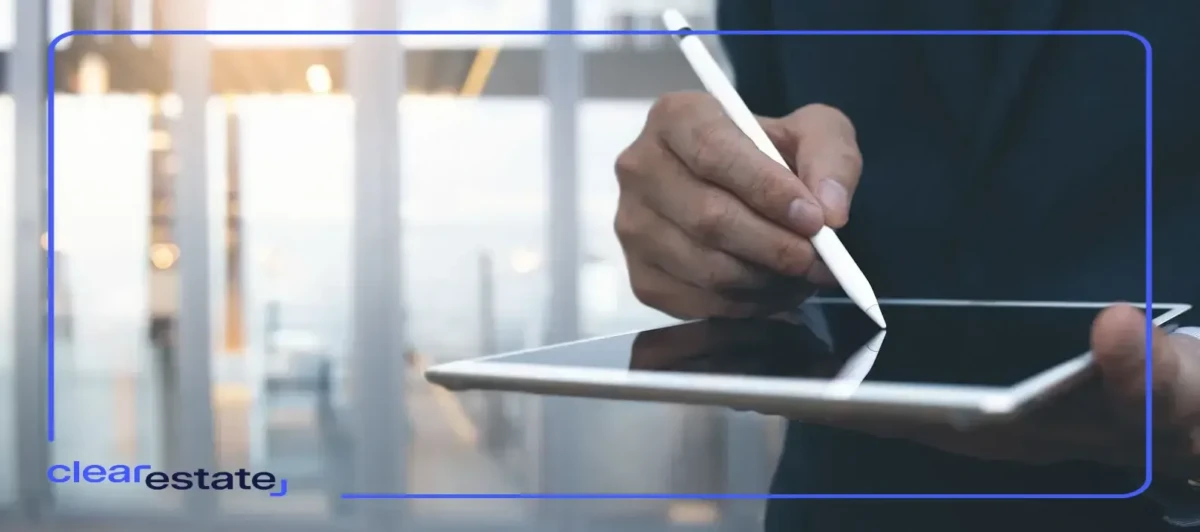Estate Settlement
Dec 04, 2024
How Do Executors Mail Inheritance Checks?
Find out how inheritance checks are mailed, including security measures and what to do if there are delays in receiving them.
Internet security experts have come to view electronic signatures, or e-signatures, as substantially more secure than the traditional method of putting ink to paper.


Time flies when you are performing nearly one trillion secure, internet-enabled financial transactions.
That’s a conservative estimate of the number of digital payments processed worldwide, up to and including those made by the end of 2021.
It’s clear that consumers feel confident about online technologies, but maintaining this confidence is crucial and requires the collaboration of all public institutions. Part of ClearEstate’s mission is to encourage these institutions to modernize their financial technology infrastructure. It’s an uphill climb as too often, people in mourning are denied access to equitable, accessible and completely legal digital estate settlement options.
It’s a scenario that the team sees frequently, even in recent days, and can be a downright cruel experience delivered by well-intentioned government officials believing to be following guidelines.
We regularly share relevant information about wills and estates.
For about a decade, internet security experts have come to view electronic signatures, or e-signatures, as substantially more secure than the traditional method of putting ink to paper.
The rapidly-evolving fintech sector, combined with the increasing popularity of contactless transactions in the pandemic era, bodes well for digital estate settlement and its accommodation of online transactions.
In Canada, e-signatures are accepted for most transactions and are even encouraged by the federal government, which states in its E-Signatures Guidelines that it will continue to “replace paper-based processes with electronic practices that are more modern, faster and easier to use.”
The estate settlement process is a series of financial transactions that can mostly be performed digitally but some outdated processes can make a difficult job even more painful.
For one grieving family in the ClearEstate community, red tape and one government office’s reluctance to recognize their e-signatures resulted in confusion, frustration and additional legal expenses. All because of a misunderstanding.
ClearEstate co-founder and Chief Product Officer Alexandre Gauthier recently supported the family of a working mom who left a modest inheritance to her adult children. Her eldest, appointed the executor as per her will, approached ClearEstate to help the family through the probate paperwork, which included some standard pension, death and survivor benefits.
“We work with financial institutions and the client to gather the inventory of the estate so that we can prepare the documentation for probate, which is one of the major milestones in the estate process,” explained Gauthier.
Probate is the key to unlocking the information that allows an executor to properly fulfill their role, from liquidating assets to paying off debts.
ClearEstate uses e-signature applications like DocuSign that are widely recognized as secure and reliable transaction platforms. Yet despite this, Gauthier’s clients in Saskatchewan were running into considerable roadblocks. One government office, key to the probate process, refused to allow e-signatures for basic parts of the process, a frustrating clerical error that is not uncommon.
“It's 2021,” Gauthier said. “Federal policies on e-signatures are pretty clear. It also bears mentioning that we are still in a pandemic, where being physically present to sign a document is not ideal or even safe for someone who is immunocompromised.”
ClearEstate makes the process as easy as possible with the latest online tech but it’s still a lot of work. For example, the Canadian death benefit form contains 135 questions, with the survivor benefits form weighing in at a whopping 185 questions.
 Simplify Probate Today
Simplify Probate Today
Get expert guidance from our probate specialists who've helped 10,000+ families.
Book a free consultation today